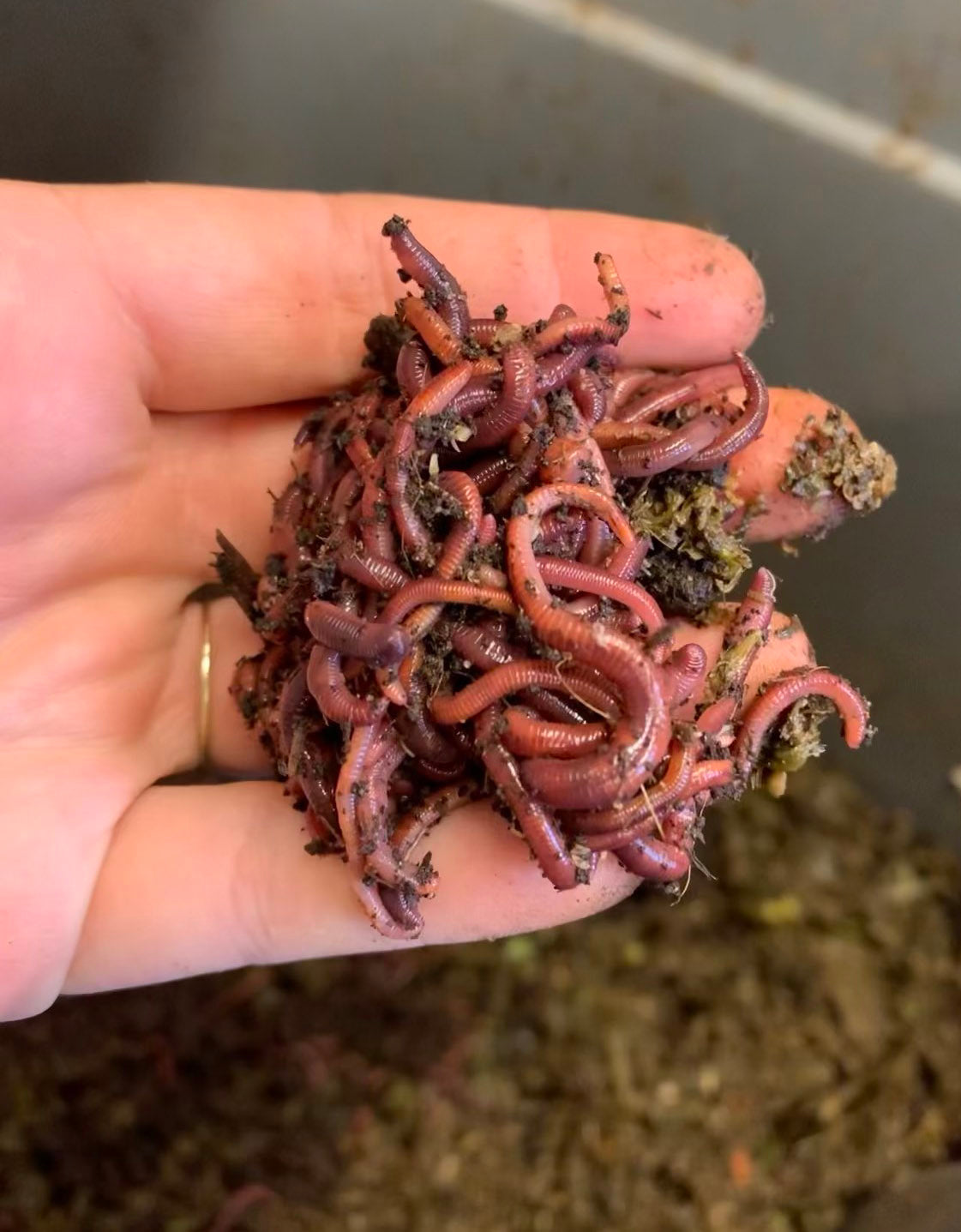Get Your Lawn in Top Shape with the Help of Lake Hickory Bait Yard Care Solutions
Get Your Lawn in Top Shape with the Help of Lake Hickory Bait Yard Care Solutions
Blog Article
Red Wigglers: The Unsung Heroes of Organic Waste Recycling
Red wigglers, or Eisenia fetida, serve as crucial agents in the organic waste recycling procedure, changing disposed of products into useful vermicompost. As the world progressively looks for solutions to battle waste build-up and improve farming productivity, recognizing the function of these worms becomes crucial.
What Are Red Wigglers?
The impressive strength of red wigglers, clinically known as Eisenia fetida, highlights their essential role in natural waste recycling. These small, reddish-brown earthworms are typically discovered in decomposing raw material, such as compost heap and manure lots. Lake Hickory Bait. Unlike other earthworm types, red wigglers prosper in nutrient-rich environments and are extremely efficient at breaking down natural materials, making them necessary for vermicomposting

(Red Wiggler Express)In addition to their duty in waste reduction, red wigglers add to soil wellness by boosting dirt structure and oygenation via their delving tasks (Lake Hickory Bait). Their presence in composting systems not only improves decay prices yet additionally advertises a lasting method to throw away administration, highlighting their value in eco-friendly preservation efforts
Advantages of Composting With Worms
Composting with worms, particularly red wigglers, offers various advantages that enhance both waste monitoring and soil health. First, these worms efficiently break down organic waste, transforming it right into nutrient-rich vermicompost that improves dirt. This procedure increases disintegration, permitting a quicker recycling of kitchen area scraps and various other organic materials contrasted to typical composting techniques.
Furthermore, the vermicompost created by red wigglers is brimming with useful bacteria, which aid boost dirt structure, oygenation, and dampness retention. This improves the general wellness of plants, advertising energetic development and enhanced yields in yards and farming settings. The usage of worms in composting minimizes the manufacturing of greenhouse gases, such as methane, adding to an extra sustainable waste monitoring system.

Exactly How to Beginning Vermicomposting
Developing a vermicomposting system is a straightforward process that can generate significant benefits for both waste management and soil enrichment. To begin, select an appropriate container, such as a plastic container try this website or wood box, with appropriate ventilation openings to make certain proper airflow. The dimensions ought to preferably be about 2 feet by 3 feet, permitting enough room for the worms to grow.
Next, prepare bed linen material, which can consist of shredded newspaper, cardboard, or coconut coir. This bedding ought to be moistened to produce an appropriate habitat for the worms. Once the bedding is in location, introduce red wigglers (Eisenia fetida) into the container, typically around one pound of worms for every square foot of surface location.
Following the placement of worms, include organic waste, such as vegetables and fruit scraps, coffee premises, and smashed eggshells. Prevent adding dairy products, meat, or oils, as these can produce odors and attract parasites. Ultimately, place the container in a shaded, temperature-controlled area to maintain optimum problems for worm activity. With these steps, you will effectively launch a vermicomposting system that adds to sustainable waste management and enhances your soil.
Preserving a Healthy And Balanced Worm Bin
(Red Wiggler Express)Maintaining a worm bin thriving needs regular interest and care to make sure the health and wellness of the red wigglers and the efficiency of the composting procedure. Correct maintenance starts with checking the moisture degrees; the container ought to be wet but not saturated. A great regulation of thumb is to preserve an uniformity comparable to a wrung-out sponge.
Aeration is critical also. Carefully blending the bedding and food scraps every few weeks avoids compaction and makes sure that all worms have accessibility to oxygen. Additionally, it is crucial to feed the worms properly. A balanced diet regimen of vegetables and fruit scraps, coffee premises, and crushed eggshells ought to be provided in moderation to avoid overfeeding, which can cause odors and bugs.
If the bin becomes too warm or chilly, the worms may become stressed. By faithfully taking care of these elements, one can maintain a robust and effective worm container.
Effect on Lasting Living
The effective upkeep of a worm bin not just profits the health and wellness of red wigglers yet additionally contributes significantly to sustainable living methods. By reusing organic waste, such as kitchen scraps and backyard particles, red wigglers help divert substantial quantities of material from landfills. This decrease in waste not only lowers greenhouse gas discharges yet additionally reduces the environmental worry connected with waste administration.
In addition, the castings produced by red wigglers act as a nutrient-rich organic plant food, improving dirt wellness and promoting plant growth. This all-natural alternative to chemical plant foods supports lasting agriculture and horticulture practices, lowering reliance on artificial inputs that can harm ecosystems. In addition, worm composting promotes understanding of waste management, motivating individuals and neighborhoods to adopt even more lasting practices.

Verdict
In summary, red wigglers serve as vital factors to natural waste recycling with their effective decomposition of natural products. By integrating vermicomposting right into waste management strategies, people and areas can substantially decrease waste while advertising ecological sustainability.
Report this page